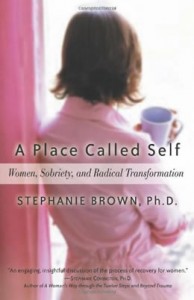 One of the problems with an aspirational and non-prescriptive definition of recovery is that it is hard to measure. The definitions most commonly featured in the literature share some elements including wellbeing or health, abstinence and citizenship.
One of the problems with an aspirational and non-prescriptive definition of recovery is that it is hard to measure. The definitions most commonly featured in the literature share some elements including wellbeing or health, abstinence and citizenship.
Clearly if you can’t define it precisely, then it’s hard to commission services to deliver on it. In this case proxy outcomes are used. There’s a lot of debate amongst professionals on recovery definitions and measurements, but what about service users? What do they make of ‘recovery’?
In a teasingly titled paper (‘‘You’re all going to hate the word ‘recovery’ by the end of this’’: Service users’ views of measuring addiction recovery) Joanne Neale and colleagues scope the views of clients and patients in a variety of settings and run past them professional perceptions on recovery measures. How different are the perspectives?


 ‘Recovery has held so many surprises for me. Some good. Some bad. I didn’t know I could hurt so much. But I also didn’t know I could love so much and be so loved. I had no idea that recovery was also learning how to be in intimate relationships, learning how to have close, wonderful friends. Then there’s my marriage. My husband and I have developed a rich life together. And get this – I really like myself now. Learning about who I am and accepting me, that’s been the hardest part of recovery – and the best. I wouldn’t trade this path for anything in the world.’ Anne, Recoveree
‘Recovery has held so many surprises for me. Some good. Some bad. I didn’t know I could hurt so much. But I also didn’t know I could love so much and be so loved. I had no idea that recovery was also learning how to be in intimate relationships, learning how to have close, wonderful friends. Then there’s my marriage. My husband and I have developed a rich life together. And get this – I really like myself now. Learning about who I am and accepting me, that’s been the hardest part of recovery – and the best. I wouldn’t trade this path for anything in the world.’ Anne, Recoveree
